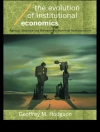This is the hidden history of an invention that we use every day but seldom dare to speak of. In medieval China it was cutting-edge technology. For 19th-century Americans it was a newfangled alternative to dried corncobs and the Sears & Roebuck catalogue. Wits in Georgian London preferred pages of bad poetry. The sages of ancient Athens were content to wield the xylospongion instead. It’s the tale of toilet paper; the biography of bumfodder.
From its origins at the Imperial court of Emperor Hongwu to its reinvention as a quack remedy for haemorrhoids in 1870s New York city; from the Dutch and their mussel-shells to Henry VIII and his Groom of the Stool; from Madame de Prie’s pioneering bidet to the space-age Washlet; from leaf-wielding chimpanzees to Mr Thirsty Fiber and the world’s first three-adjective loo-roll – it’s a story of necessity and invention, luxury and squalor, experiment and tradition.
What does a submarine crew do when it runs out of toilet paper? Who stole the Pope’s loo-roll? Does printer’s ink cause piles? How do you fold a sheet of toilet paper in half more than seven times? What did 'bumphleteers’ do, and why? Richard Smyth answers the questions you never thought to ask about the product we can’t live without.
O autorze
Richard Smyth is a writer and cartoonist. He’s a regular contributor to magazines including History Today, Bird Watching and New Humanist and his creative writing has appeared in Cent, Vintage Script, The Fiction Desk and The Stinging Fly.












